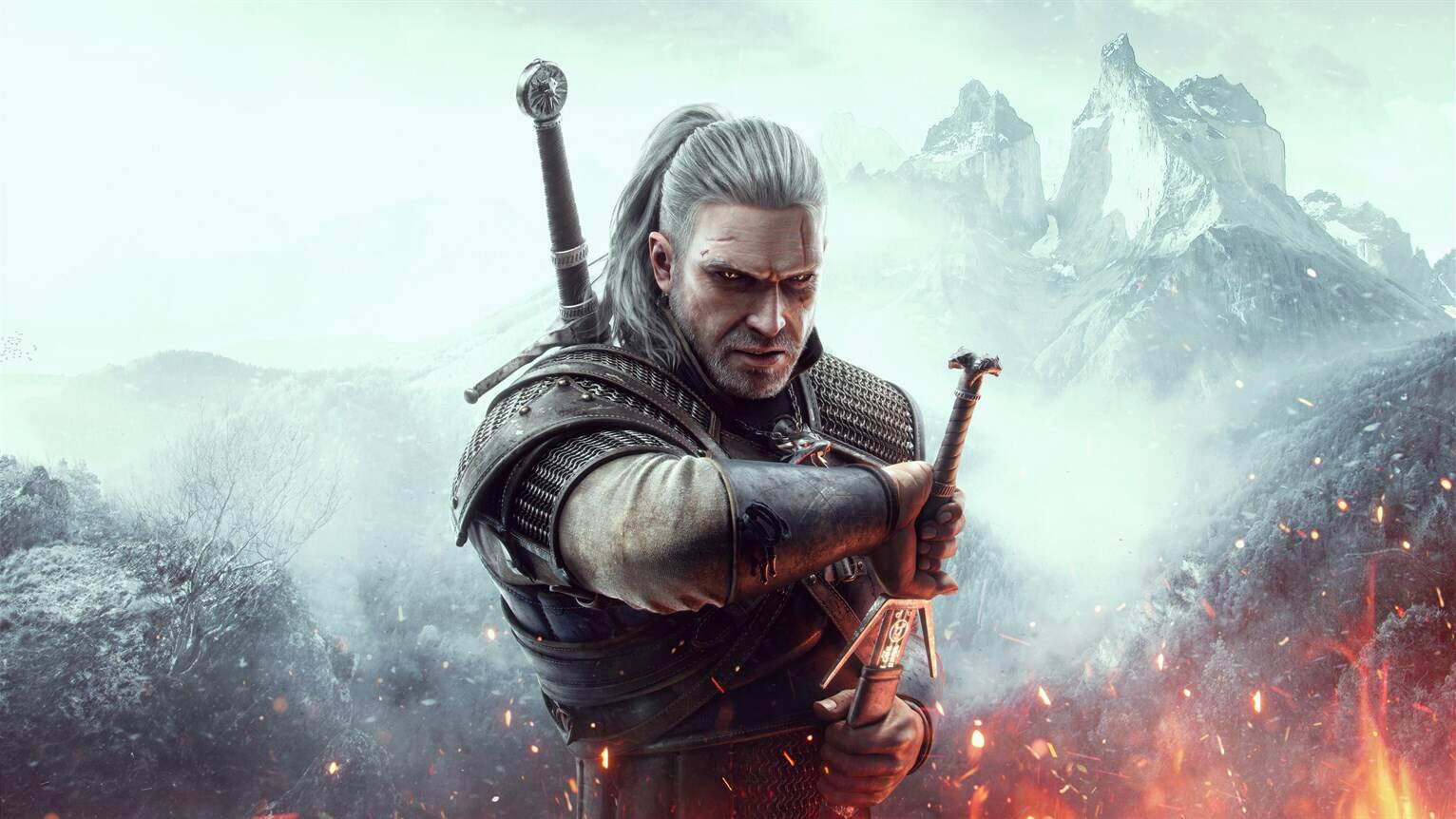CD Projekt Red has officially confirmed what many fans feared: The Witcher 4—codenamed Polaris—will not be released before 2027. During its March 2025 investor presentation, the studio stated that the next entry in the beloved RPG series won’t launch in 2026, pushing its earliest potential release into 2027. This aligns with the studio’s new multi-year development strategy, which emphasizes quality over speed following the troubled launch of Cyberpunk 2077.
A New Saga Begins – But It’s Going to Take Time
The Witcher 4 marks the beginning of a new trilogy within the Witcher universe and represents a fresh creative direction for the franchise. For the first time in the series, players will reportedly step into the boots of Ciri as the protagonist, shifting away from the long-time lead, Geralt of Rivia. This change alone signals a bold narrative departure, offering fans new perspectives and challenges in the war-torn, magic-infused world of The Continent.
Full production on Polaris only began in late 2024, with CD Projekt Red committing over 400 developers to the project. Despite this ramp-up, the studio is taking a cautious approach. The developers are utilizing Unreal Engine 5, abandoning their proprietary REDengine in favor of more scalable, cutting-edge technology. The switch is intended to reduce the technical issues that plagued past launches and make future development across multiple projects more efficient.
Why the Delay?
Several factors are contributing to the delayed timeline:
- CD Projekt Red’s Strategy Shift: After years of criticism for launching Cyberpunk 2077 before it was ready, the company is now prioritizing long-term polish over release deadlines. The studio’s new development philosophy is focused on multi-project parallelism, but each project still needs its own cycle of rigorous development and QA.
- Next-Gen Ambitions: The Witcher 4 is expected to be a next-generation RPG in every sense, not only visually but also in terms of scale and gameplay systems. The studio has hinted that Polaris will build on the open-world storytelling of The Witcher 3 while incorporating lessons learned from Cyberpunk 2077 in terms of player choice, quest complexity, and city/world design.
- Gameplay Reveal in 2026: CDPR has teased that fans will get their first real look at The Witcher 4 sometime in 2026, which puts a 2027 release into context. The studio typically showcases its games at least a year before launch, meaning we could expect a major reveal at an event like Summer Game Fest or The Game Awards in 2026.
What’s Ahead for The Witcher Universe?
Polaris is just the beginning. CD Projekt Red has committed to developing two additional games in the trilogy, all of which will release over the course of several years. The studio is also managing other Witcher-related projects, including:
- A remake of the original Witcher using Unreal Engine 5, developed by Fool’s Theory.
- Ongoing updates and expansions for Cyberpunk 2077 and other franchises under the CDPR umbrella.
- Continued multimedia expansions, including Netflix adaptations and Gwent-related spin-offs.
Final Thoughts
For now, fans of The Witcher will have to remain patient. While 2027 may seem far away, CD Projekt Red appears determined not to repeat past mistakes. If the wait results in a polished, immersive, and emotionally resonant RPG that lives up to—or even surpasses—The Witcher 3: Wild Hunt, the delay will likely be more than worth it. Until then, all eyes are on 2026 for that first gameplay reveal.
Best Game Soundtracks Of All Time
Video game music sets the mood for our adventures. From the fast beats that get our hearts racing in boss fights to the gentle tunes that help us explore new worlds, game soundtracks make our experiences better. Great video game music stays with us long after we’ve stopped playing, becoming part of our memories and playlists.
Music in games has changed a lot over the years. Early games had simple beeps and boops, but now they have full orchestras and famous composers. The best video game soundtracks blend perfectly with gameplay, creating moments that stick with us for years. Some games are even known mainly for their amazing music.
1) The Legend of Zelda: Ocarina of Time
The music of Ocarina of Time stands as one of gaming’s greatest achievements. Since its 1998 release, fans and critics alike have praised its soundtrack for its emotional depth and memorable melodies.
Many consider it the best soundtrack in the entire Zelda series, with songs that stick in players’ minds for years. The music does more than simply play in the background – it becomes a key part of the game itself.
The game holds the distinction of being named “Best Video Game Soundtrack Ever” by numerous publications. This honor comes as no surprise to anyone who has heard the haunting melodies of the Lost Woods or the triumphant Hyrule Field theme.
What makes the soundtrack special is how each piece fits its setting perfectly. The eerie tones of the Shadow Temple create genuine fear, while Zora’s Domain’s peaceful waters are matched with calming music.
The music also changes with time of day and location, making Hyrule feel like a living world. Night brings softer, mysterious versions of daytime themes, adding depth to the game world.
Koji Kondo, the composer, created some of the catchiest musical cues in video game history with limited technology. The fact that these songs remain instantly recognizable decades later speaks to their quality.
The game sits at the top of Metacritic with a near-perfect score of 99, and its soundtrack plays a huge role in that achievement. Few game soundtracks have had such lasting impact on gaming culture.
2) Chrono Trigger
Chrono Trigger stands as one of the most beloved video game soundtracks of all time. Composed by Yasunori Mitsuda, this 1995 JRPG’s music continues to capture hearts even as the game celebrates its 30th anniversary.
What makes this soundtrack special isn’t just nostalgia. The music perfectly matches each scene and setting, from peaceful village themes to intense battle music. Many fans still hum these tunes decades later.
The soundtrack blends groovy, foot-tapping jazz with orchestral elements in a way few games had done before. This mix created a unique sound that later JRPGs would try to copy but rarely match.
Each character has their own musical theme that tells you about their personality. These themes blend into other songs throughout the game, creating a rich musical experience.
Reddit users often rank it at the top of JRPG soundtracks, with many saying it’s “better by far than anything of this generation” of video games. Even compared to its sequel Chrono Cross, which has an excellent soundtrack of its own, many fans prefer the original.
The soundtrack has been hailed by critics as one of the best ever made. Its “Original Sound Version” album received similar praise when released.
Today, fans can easily stream the music, keeping these classic tunes alive for new generations. The songs remain fresh and moving despite being created with the limited sound technology of the SNES era.
3) Final Fantasy VII
Final Fantasy VII’s music stands as one of the most iconic soundtracks in gaming history. Composer Nobuo Uematsu created a musical experience that many gamers still hold dear decades after its release.
The battle theme gets your heart racing with its urgent tempo. The boss music builds tension at just the right moments. These tracks add real emotion to every fight.
Many fans consider it the best soundtrack in video game history. The music shifts perfectly between moods – from the industrial sounds of Midgar to the peaceful themes of rural areas.
“One Winged Angel” might be the most famous track from the game. This boss theme for Sephiroth broke new ground by adding Latin choir vocals to video game music. It’s arguably the soundtrack’s most famous tune.
The music does more than just play in the background. It tells a story on its own, making sad moments sadder and victories sweeter.
Some fans think other Final Fantasy games have better music. Final Fantasy IX fans often argue their soundtrack is superior. But VII’s music has reached beyond gaming into popular culture.
The soundtrack was revolutionary for its time. It used the PlayStation’s sound chip to create music that felt almost like a movie score rather than simple game music.
Years later, modern orchestras still perform these songs in concert halls worldwide. This shows the lasting impact of what many call Uematsu’s finest work.
4) Journey
Journey’s soundtrack stands out as a masterpiece in video game music. Created by composer Austin Wintory, this beautiful collection of sounds takes players on an emotional journey through the game’s desert landscapes.
The music features strings and Eastern wind instruments that perfectly match the game’s visual style. The soundtrack builds emotional connections with players as they travel through the mysterious world.
What makes Journey’s soundtrack special is how it changes based on what players do in the game. The music grows and shifts as you move through different areas, making each player’s experience unique.
In 2012, Journey became the first video game soundtrack ever nominated for a Grammy Award. This historic nomination helped show that video game music deserves the same respect as movie soundtracks.
Many music critics and gamers consider Journey’s soundtrack one of the best in gaming history. Its beautiful melodies stay with players long after they finish the game.
The soundtrack features “long beautiful lines together with playful patterns,” creating what some consider a true masterpiece. Wintory’s music enhances the game’s themes of connection and personal growth.
Even people who haven’t played the game can enjoy Journey’s soundtrack. The music tells its own story through its emotional ups and downs.
Years after its release, Journey’s soundtrack remains a high point in video game music. Its influence can be heard in many games that came after it.
5) The Witcher 3: Wild Hunt
The music in The Witcher 3: Wild Hunt stands as a truly phenomenal achievement in gaming. It pulls players into the gritty fantasy world with its mix of folk instruments, haunting vocals, and orchestral arrangements.
What makes this soundtrack special is how it changes with the game world. The music shifts from peaceful village tunes to intense battle themes as you travel through different regions.
The game features standout tracks like “Ladies of the Woods” that perfectly capture the eerie feeling of meeting the crones. These musical moments stick with players long after they’ve finished the game.
Many fans consider this one of the best soundtracks ever made for a game. The composers used traditional Slavic instruments to create a unique sound that feels both ancient and fresh.
Combat music in The Witcher 3 deserves special praise. It gets your heart racing during monster fights without becoming repetitive or annoying.
The tavern songs and background music bring life to the game’s towns and cities. You can almost smell the beer and hear the chatter when these tunes play.
Some players note there is some repetition in the soundtrack, but the quality of each piece makes up for any shortcomings in variety.
The music team deserves credit for crafting songs that match the game’s emotional story beats perfectly. From tender moments with loved ones to facing down terrible beasts, the music always fits the scene.
6) Undertale
Undertale’s soundtrack stands as one of gaming’s most memorable musical achievements. Created by Toby Fox, this indie game’s music does more than just play in the background – it tells a story.
The soundtrack brilliantly uses simple melodies that stick in your head. Many songs become themes for specific characters, making them instantly recognizable. Songs like “Nyeh Heh Heh!” and “sans.” perfectly capture each character’s personality, giving players a quick understanding of who they’re meeting.
What makes Undertale’s music special is how it changes throughout the game. Themes reappear in different forms, reflecting story developments and emotional shifts. This clever use of musical motifs helps players connect with the game world.
Fan communities have ranked these songs extensively, showing how deeply the music resonates with players. Tracks like “Megalovania” have become cultural icons beyond the game itself.
The soundtrack succeeds by mixing chiptune sounds with more complex musical arrangements. This blend creates a nostalgic feel while still delivering emotional depth that many modern game soundtracks lack.
Undertale proves that a game doesn’t need a massive budget to create unforgettable music. The soundtrack enhances the storytelling in ways few other games manage, making each encounter and location more meaningful.
Years after its release, people still discuss and create tier lists of Undertale’s music, showing its lasting impact. The soundtrack remains a perfect example of how music can make a good game great.
7) Shadow of the Colossus
Few game soundtracks capture the feeling of a world like Shadow of the Colossus. Composed by Kow Otani, this music stays with players long after they’ve put down the controller.
The music shifts perfectly between quiet exploration and epic battles. When players ride across empty plains, soft strings play gently in the background. This creates a sense of loneliness that fits the game’s empty world.
But when a colossus appears, everything changes. The music swells with drums and horns, making each fight feel important. These battle themes help make the game’s huge monsters feel both scary and sad.
What makes this soundtrack special is how it tells a story without words. The music hints at the game’s hidden sadness, even during moments of victory. Each tune adds to the game’s mood in ways few other games manage.
Many gamers and critics rank it among the best video game music ever made. The soundtrack moves between calm and intense moments with grace.
The music doesn’t just back up the action – it helps tell the story. Notes of sadness mix with wonder as players travel through ancient ruins and face giant foes.
Otani created one of gaming’s most memorable scores without much fanfare. The music perfectly matches the game’s themes of sacrifice, beauty, and loss.
Years after its release, this soundtrack still stands as proof that video game music can be true art. It shows how powerful music can be when it perfectly matches the game it was made for.
8) Hollow Knight
Hollow Knight’s soundtrack stands out in the gaming world with its hauntingly beautiful music. The composer created a perfect match for the game’s underground world filled with bugs and mystery.
The music changes as you move through different areas of the game. Each song helps you feel the mood of that place, whether it’s scary, peaceful, or sad.
Hollow Knight’s OST has many fan favorites. Songs like “Mantis Lords,” “Hornet,” and “Hollow Knight” often appear at the top of rankings.
Boss fight music in this game deserves special praise. The themes for “Mantis Lords,” “Nightmare King,” and “Radiance” make these battles even more exciting and memorable.
“Queen’s Gardens” shows how the music can paint a picture of a place. When players hear it, they can almost see the overgrown, once-beautiful garden area.
What makes this soundtrack special is how it uses simple piano and string sounds. These create a lonely feeling that matches the empty, fallen kingdom in the game.
The music never gets in the way of playing. Instead, it adds to every moment, making happy times happier and scary times scarier.
Hollow Knight proves that video game soundtracks can be true art. The music helps tell the story without words and makes players feel connected to this strange bug world.
Players often listen to these songs even when not playing the game. That’s the mark of a truly great game soundtrack.
9) Nier: Automata
Nier: Automata features one of the most stunning game soundtracks ever created. Many fans and critics agree it’s hands down the best soundtrack ever made for a game.
The music blends orchestral arrangements with haunting vocals that perfectly match the game’s post-apocalyptic setting. Composer Keiichi Okabe created a sound that feels both ancient and futuristic at once.
What makes this soundtrack special is how it changes with gameplay. Music shifts between calm piano melodies and intense battle themes seamlessly. Each track fits its environment perfectly.
The vocals by Emi Evans add another layer of beauty. She created a fictional language for many songs that sounds both familiar and alien.
Standout tracks include “City Ruins,” which plays as players explore abandoned cities overtaken by nature. The song “Weight of the World” serves as the game’s emotional theme song in multiple languages.
The soundtrack won “Best Score/Music” at The Game Awards 2017, proving its quality was widely recognized in the gaming industry.
“Wretched Weaponry” stands out as another fan favorite. It combines mechanical sounds with choral elements that capture the struggle between machines and what remains of humanity.
The music does more than set a mood – it tells a story. Each character has their own musical themes that help players connect with them emotionally.
Even years after release, players still discuss how nothing comes close to the emotional impact of Nier: Automata’s soundtrack.
10) Celeste
Celeste’s soundtrack stands out as one of gaming’s finest musical achievements. Created by composer Lena Raine, this soundtrack perfectly captures the emotional journey of protagonist Madeline climbing Celeste Mountain.
Each track in the game matches the area and challenges players face. The music shifts from calm, reflective pieces to intense beats during difficult platforming sections.
B-side tracks offer even better variations of the original songs, adding complexity and energy to the already excellent soundtrack. Tracks like “Celestial Resort B Side” and “Reflection B Side” showcase Raine’s talent for musical transformation.
The soundtrack excels at building tension during tough sections. Songs like “Resurrections” start softly and build to powerful climaxes, helping players push through challenging gameplay moments.
What makes Celeste’s music special is how it connects to the game’s themes of anxiety, determination, and self-acceptance. The music rises and falls with Madeline’s emotional state throughout her climb.
Celeste’s soundtrack works wonderfully as background music for working or studying. The lack of lyrics and careful pacing creates a focus-friendly listening experience even outside the game.
Many fans rank Celeste among their most listened-to game soundtracks, placing it alongside classics from much bigger games. This speaks to the lasting impact of Raine’s compositions.
The soundtrack’s blend of electronic and piano-driven melodies creates a distinct sound that has influenced indie game music since its 2018 release.
11) Halo: Combat Evolved
Halo: Combat Evolved didn’t just revolutionize first-person shooters in 2001—it also gave us one of gaming’s most iconic soundtracks. Composers Martin O’Donnell and Michael Salvatori created music that perfectly matched the game’s epic sci-fi story.
The main Halo theme, with its haunting Gregorian chants, became instantly recognizable. Even people who never played the game can hum this tune. It sets the tone for a battle that feels both ancient and futuristic.
Combat scenes feature driving percussion and energetic strings that make players feel like genuine space marines. The music ramps up during intense firefights and calms down during exploration moments.
What makes this soundtrack stand out is how it makes the gameplay incredible. The music doesn’t just play in the background—it becomes part of the experience. Many fans consider it among the best in the series.
The track “On a Pale Horse” creates tension as you drive the Warthog through alien landscapes. “Rock Anthem for Saving the World” pumps you up for major battles. These pieces aren’t just background music—they’re storytelling tools.
The dramatically atmospheric score blends orchestra, synths, and percussion to create something unique. It feels both military and mysterious, perfect for a game about ancient alien secrets.
Cultural Impact
Video game soundtracks have grown beyond games to influence modern music and culture. Composers like Nobuo Uematsu (Final Fantasy) and Koji Kondo (Super Mario Bros.) are now recognized alongside traditional film composers.
Game music concerts fill large venues worldwide. The Video Games Live tour has performed in over 40 countries, bringing game soundtracks to life with full orchestras.
Many musicians cite video games as major influences. Artists from EDM producers to classical composers draw inspiration from the unique sounds of games.
Streaming platforms now feature game music playlists with millions of followers. Games like Guilty Gear and Persona have introduced players to genres they might never have discovered otherwise.
Game soundtracks have become collectible items, with vinyl releases of classic soundtracks selling out quickly among fans and collectors.
Evolution of Game Soundtracks
Video game music has changed dramatically since the early days of gaming. The journey from simple beeps to complex orchestral arrangements shows how technology and creativity have shaped gaming experiences.
From Chiptunes to Orchestras
The earliest video games featured basic beeps and bloops due to hardware limitations. Games like Pong (1972) used simple sound effects rather than music. By the 1980s, the distinctive 8-bit sounds of the Nintendo Entertainment System created memorable tunes despite technical constraints.
Koji Kondo’s work on Super Mario Bros. and The Legend of Zelda showed how simple melodies could become iconic. These early chiptunes had to be carefully designed to fit into tiny memory spaces.
The 16-bit era brought richer sounds. Games like Final Fantasy VI featured more complex compositions that pushed hardware capabilities. Nobuo Uematsu’s work during this period remains highly regarded.
The CD-ROM era in the 1990s allowed for recorded music. This shift enabled games to include full orchestral scores, voice acting, and licensed music. Games like Myst used ambient sounds to create atmosphere.
Technological Advancements
Hardware improvements directly affected game music quality. The move from 8-bit to 16-bit systems doubled the available sound channels, allowing for more complex arrangements.
The PlayStation era introduced CD-quality audio, eliminating many previous limitations. Games like Metal Gear Solid used this technology for cinematic scores that enhanced storytelling.
Modern game engines now support:
- Adaptive music that changes with gameplay
- High-quality streaming audio
- Dynamic mixing based on player actions
- Spatial audio for immersive experiences
Hans Zimmer’s contribution to Crysis 2 shows how Hollywood composers now work in gaming. The line between film and game scores has blurred.
Games like Super Mario Galaxy feature full orchestral recordings, showing how far game music has come. Today’s soundtracks often release as standalone albums, recognized as legitimate musical works.
Iconic Composers in the Industry
Video game music has evolved into a respected art form thanks to talented composers who created unforgettable soundtracks. These musical pioneers helped shape gaming experiences through their distinctive styles and innovative approaches.
Nobuo Uematsu
Nobuo Uematsu stands as one of the most influential figures in video game music history. His work on the Final Fantasy series spans over ten games, creating a musical legacy that defines the franchise.
Uematsu’s compositions range from sweeping orchestral pieces to intimate character themes. His music often tells emotional stories without words, enhancing the gaming experience through careful musical storytelling.
The range of his talent is impressive. “One-Winged Angel” from Final Fantasy VII remains one of gaming’s most recognized villain themes, while the delicate “Aerith’s Theme” shows his skill with emotional compositions.
What makes Uematsu special is how his music transcends the games. His compositions are performed by orchestras worldwide, bringing video game music to traditional concert halls and new audiences.
Koji Kondo
Koji Kondo created the musical identity for Nintendo’s biggest franchises. His work on Super Mario Bros. and The Legend of Zelda produced some of the most recognizable melodies in entertainment history.
The Super Mario Bros. theme changed video game music forever. Simple yet catchy, it proved games could have memorable musical identities. This short tune has become known worldwide, even by people who never played the game.
Kondo’s genius lies in creating music that complements gameplay perfectly. His Zelda compositions shift from peaceful exploration themes to tense battle music, enhancing the player’s emotional connection.
Music experts consider Kondo to have “the single greatest impact on video game music” as an art form. His compositions work within technical limitations while remaining musically interesting and memorable.
Frequently Asked Questions
Video game music has become a vital part of gaming culture, with certain soundtracks standing out for their creativity, emotional impact, and technical innovation. Many famous composers have created memorable themes that players recognize instantly.
What are some of the most iconic video game soundtracks recognized by the gaming community?
The gaming community widely celebrates the soundtrack from The Legend of Zelda: Ocarina of Time as one of the most iconic ever created. Koji Kondo’s work on this game helped define an entire generation of adventure music.
Final Fantasy VII by Nobuo Uematsu remains another highly praised soundtrack, with “One-Winged Angel” being one of the most recognizable boss themes in gaming history. The music perfectly matches the game’s emotional storyline.
Other frequently mentioned classics include Chrono Trigger, Super Mario Bros., Halo, and The Elder Scrolls V: Skyrim. Each brings unique musical elements that enhance gameplay and create lasting memories.
How has video game music evolved over the years and influenced the industry?
Video game music started with simple beeps and bloops on early consoles due to technical limits. The 8-bit era brought catchy, simple tunes that had to make the most of limited hardware.
As technology advanced, games like Final Fantasy VII showcased more complex MIDI arrangements. By the 2000s, fully orchestrated scores became common, with games like The Witcher 3 featuring professional orchestras.
Today, video game music regularly appears in concert halls around the world. Many composers now move between film, television, and games, bringing cinematic quality to interactive experiences.
Are there any underappreciated video game soundtracks that experts believe should receive more recognition?
Despite critical acclaim, Journey’s soundtrack by Austin Wintory deserves even more recognition for its innovative use of adaptive music that changes based on player actions. It was the first video game soundtrack nominated for a Grammy.
The music from Nier: Automata by Keiichi Okabe blends multiple genres with vocals in an imaginary language. Music experts praise its complex arrangements and emotional depth.
Hollow Knight, Outer Wilds, and Celeste also feature outstanding soundtracks that don’t always get the same attention as blockbuster titles but are considered masterpieces by those familiar with them.
Can you list some video games that have won awards for their musical scores?
The Witcher 3: Wild Hunt won numerous awards for its soundtrack, including recognition at The Game Awards and various other industry events. Its folk-inspired music creates a rich medieval fantasy atmosphere.
Journey became the first video game soundtrack nominated for a Grammy Award in 2013. Though it didn’t win, this nomination marked a turning point for how game music is viewed by the broader music industry.
Other award-winning soundtracks include God of War (2018), Red Dead Redemption 2, Ori and the Blind Forest, and Celeste. These games received praise for how their music enhanced storytelling and emotional impact.
Which composers are considered pioneers in the field of video game music?
Koji Kondo stands as one of the most influential video game composers, creating iconic themes for Mario and Zelda series. His work helped establish video game music as an art form.
Nobuo Uematsu revolutionized RPG soundtracks through his work on the Final Fantasy series. Many consider him the “Beethoven of video game music” for his emotional compositions and technical innovation.
Other pioneers include Yuzo Koshiro (Streets of Rage), Yoko Shimomura (Kingdom Hearts), Michael Giacchino (Medal of Honor), and Yasunori Mitsuda (Chrono Trigger). Each pushed the boundaries of what game music could achieve.
What factors contribute to a video game soundtrack’s lasting impact and popularity?
Memorable melodies play a crucial role in creating lasting soundtracks. Themes from Mario, Zelda, and Final Fantasy remain instantly recognizable decades after release.
Emotional connection is equally important. The best soundtracks like Chrono Trigger and Journey enhance key story moments and create deeper player investment.
Innovation also matters greatly. Games that pioneer new approaches to adaptive music or unique instrumentation often leave a lasting mark on the industry.
Cultural impact extends beyond the game itself. When soundtracks get concert performances, vinyl releases, or streaming popularity, they cement their place in gaming history.







